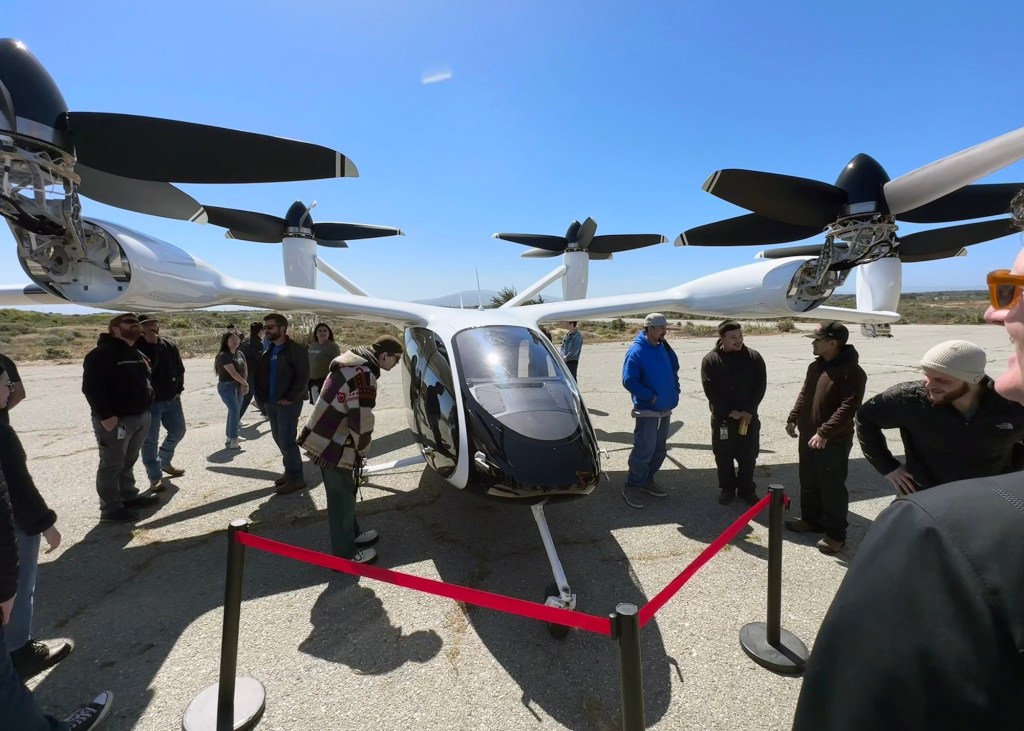MARINA – In pursuit of attaining a shared vision of air mobility, Toyota will invest $500 million more in Joby Aviation to support the certification and commercial production of Joby’s electric air taxi, including in Marina where Joby is expanding its pilot production facility.
“Today’s investment builds on nearly seven years of collaboration between our companies,” said JoeBen Bevirt, founder and CEO, Joby Aviation, in a press release. “The knowledge and support shared by Toyota has been instrumental in Joby’s success and we look forward to deepening our relationship as we deliver on our shared vision for the future of air travel.”

The investment will be made in two equal tranches, is subject to standard regulatory approvals and certain other conditions, finalization of collaborative and commercial agreements, according to Joby, and with respect to the second tranche, the finalization of terms related to a strategic alliance focused on commercial manufacturing and certain other conditions.
“With this additional investment, we are excited to see Joby certify their aircraft and shift to commercial production,” said Tetsuo “Ted” Ogawa, who signed the agreement as the Operating Officer on behalf of Toyota Motor Corporation, in the release. “We share Joby’s view that sustainable flight will be central to alleviating today’s persistent mobility challenges.”
Joby has been doing business and developing a manufacturing facility in Marina for about the past seven years where it launched production of its aircraft at its Pilot Production Plant with the first aircraft rolling off the line in June 2023. It also announced at that time that Toyota Motor North America President and CEO Ogawa had been named to Joby’s Board of Directors.
Since 2019, Toyota has been working with Joby, during which time it has offered expertise in Toyota’s production system helping the aircraft maker in its process planning, manufacturing and design.
Last year, the two companies signed a long-term agreement for Toyota to supply key powertrain and actuation components for the production of Joby’s aircraft.
The aviation company has designed and produced an electric air taxi that will carry a pilot and four passengers at speeds up to 200 mph offering high-speed mobility with a fraction of the noise produced by helicopters and zero operating emissions.
The investment will bring Toyota Motor Corporation’s total investment in Joby to $894 million and will be made in the form of cash for common stock, with the first tranche targeted to close later this year and the second in 2025.
The Marina facility is one of three in California with others at Santa Cruz — where the company is headquartered — and San Carlos. Joby Aviation also has a facility in Munich and chose Dayton, Ohio, in September of last year, as the site for its new manufacturing plant.
In March, the company announced its acquisition of an existing facility at Dayton International Airport where it has begun hiring in support of its initial operations there. The facility acquired by Joby will be fitted out to support initial manufacturing operations in Dayton, which are expected to begin later this year. The facility will be used for the manufacturing of aircraft parts in support of Joby’s Pilot Production Line in Marina.
In April, Joby broke ground on its new 220,000-square-foot manufacturing facility in Marina, expecting to begin operations in 2025. The second production prototype aircraft to roll off the company’s pilot production line was the backdrop for the ground-breaking ceremony. The company said the expansion will more than double the total footprint Joby Aviation has at the Marina Airport and will enable the company to deliver 25 aircraft a year.
The aviation company has testing facilities, which include its integrated test lab and its flight-testing capabilities in Marina. With the groundbreaking of its new facility at the airport, Joby will substantially increase what it can build in its pilot manufacturing line.
Joby’s Pilot Production Line in Marina, currently in its “mega-tent” at the Marina Airport, is designed to specifically help Joby learn how to manufacture and optimize its manufacturing processes, with the help of Toyota, so it is able to scale to larger volumes.
Joby said it continues to make important progress towards commercialization.
In August, it confirmed that the fourth of five stages of the type certification process is now more than one-third complete on the Joby side.
Originally Published:

















































